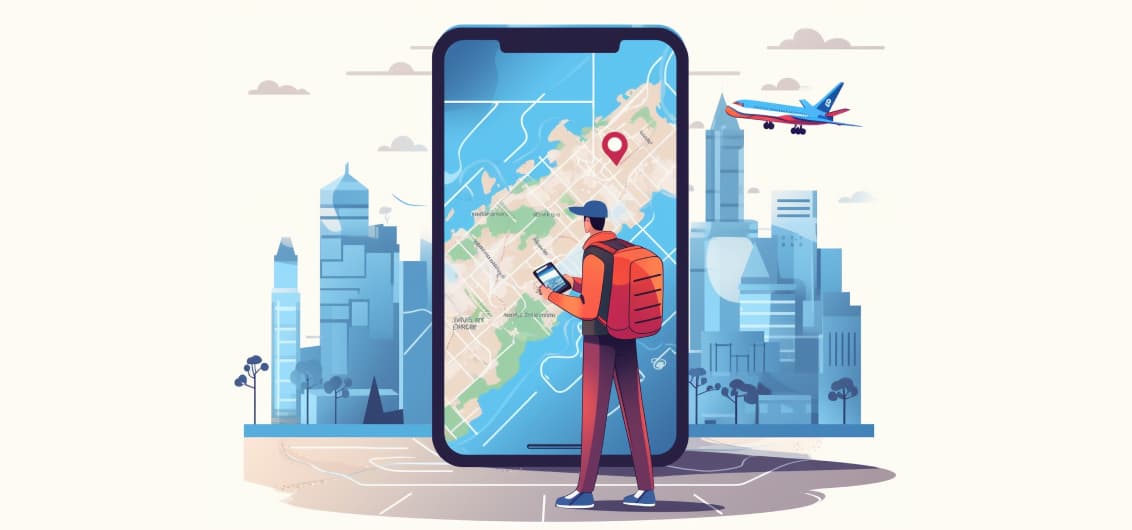Reimagining the Travel Experience: A Dive into Digital Transformation

Introduction
The travel industry, long synonymous with tangible brochures and paper tickets, has entered a new era of digital transformation. For travel companies willing to embrace this shift, the potential for growth is immense. Yet, those clinging to outdated practices risk becoming relics of a bygone era. In this blog, we delve into the transformative power of digital technologies, explore cutting-edge trends, and unveil a glimpse into the future of travel—a future marked by seamless integration, personalization, sustainability, and rejuvenation.
Decoding Digital Transformation in Travel
Digital transformation in travel is far more than just adopting new technologies. It represents a fundamental overhaul in how travel companies operate, involving a comprehensive integration of digital tools across all business functions.
As McKinsey highlights, "Digital transformation is not a one-time effort but a continuous journey that involves transforming the entire organizational ecosystem."
Key elements driving this change include cloud platforms, mobile applications, artificial intelligence (AI), and machine learning (ML). The ultimate goal is to future-proof travel companies, enabling them to deliver superior value in an ever-evolving landscape. This transformation requires both technological upgrades and a cultural shift towards a mindset that embraces innovation and change.
Benefits of Digital Transformation
Inadequate access controls can leave the door wide open for unauthorized users to gain access to sensitive data within a SaaS application. This can happen through various means, such as:
For Travelers
Digital transformation enhances the travel experience by offering:
- Streamlined booking processes.
- Intuitive mobile apps, and real-time information.
- These advancements result in a more engaged and satisfied customer making travel planning and execution more convenient and enjoyable.
For Travel Companies
Embracing digital transformation brings significant advantages, including:
- Cost savings.
- More streamlined operations.
- Strengthened competitive position in a crowded market.
- These improvements help companies operate more efficiently and differentiate themselves from competitors.
Unveiling the Impact of Digitalization
Digitalization has reshaped every aspect of the travel experience, from initial inspiration to post-trip reflection. According to a Forrester report, "The global online travel market is expected to reach $1.6 trillion by 2025, driven by the increasing demand for digital convenience and transparency."
Online Travel Agencies (OTAs) are prime examples of digitalization's impact, offering unparalleled convenience and price transparency that empower travelers to make informed decisions. However, a noteworthy advancement is the New Distribution Capability (NDC). This technology allows airlines to create dynamic, personalized offers and optimize pricing and inventory in real-time, delivering an enriched shopping experience. By integrating NDC, airlines can enhance their competitive edge and provide more tailored travel solutions, benefiting both travelers and companies.
Trends in Digital Transformation
- Cloud Adoption:
Cloud computing forms the backbone of digital transformation. By migrating critical systems and workloads to the cloud, companies gain scalability, flexibility, and efficiency.
According to Gartner, "The cloud will be the primary delivery model for new IT services by 2025, providing a competitive edge through agility and cost-effectiveness."
- Machine Learning & AI: AI is revolutionizing the travel industry with intelligent chatbots, AI-powered recommendation engines, and predictive analytics. Machine learning algorithms analyze vast datasets to optimize marketing campaigns and enhance customer experiences.
- Internet of Things (IoT): IoT connects various elements of the travel experience, from luggage tracking sensors to smart beacons in airports. This interconnectedness streamlines operations and personalizes the traveler’s journey. "IoT is creating a more seamless and efficient travel experience, enhancing both operational capabilities and customer satisfaction." - Forrester Analysis
- Digital Twins: Digital twin technology offers virtual replicas of physical destinations, allowing travelers to explore hotels, cities, and excursions virtually. This technology enables informed decision-making and heightens anticipation for upcoming trips. Digital twins will become a crucial tool in enhancing customer engagement and decision-making in travel.
- VR/AR: Virtual Reality (VR) and Augmented Reality (AR) are transforming destination experiences. VR allows travelers to explore locations virtually, while AR apps superimpose digital information onto the physical world. VR and AR are redefining how travelers experience destinations, making them more immersive and engaging.
- Biometric Recognition Technology: Biometrics, such as facial recognition and fingerprint scanning, promise to revolutionize travel security and convenience. Imagine breezing through security checks with a facial scan or unlocking your hotel room with a fingerprint. These technologies are set to enhance security and streamline travel processes, creating a frictionless experience for travelers.
A Glimpse into the Future of Travel

The Evolution of Travel Technology
Discover how travel technology is evolving and what the near future holds for travelers and travel companies
Timeline
2024
Sustainable Travel
Electric vehicles (eVTOLs) and eco-friendly hotels with renewable energy are becoming increasingly common.
2027
Relaxation Redefined
Future travel will focus on relaxation with biometric sensors to monitor stress levels and robotic assistants managing tasks.
2023
Hyper-Personalization
AI concierges are starting to offer tailored recommendations based on travel behavior and real-time data.
2025
Seamless Integration
Unified travel platforms powered by AI are emerging, integrating flights, accommodations, itineraries, and activities into a cohesive experience.
This future is not a distant dream but an imminent reality for travel companies embracing digital transformation. By leveraging cutting-edge technologies and aligning with evolving traveler expectations, the industry can usher in a new era of seamless experiences, unparalleled personalization, and sustainable exploration.
Ready to Embrace the Future?
Embarking on the digital transformation journey can be daunting, but it’s essential for staying competitive. Partnering with experts in AI, cloud computing, and other transformative technologies can provide the confidence and expertise needed to navigate this exciting path. Together, we can create a future where travel ignites the soul, fosters connections, and leaves travelers eagerly anticipating their next adventure.
Key Takeaways
“The future of travel is not just about reaching a destination but about how technology transforms the entire journey, making it more personalized, efficient, and sustainable."
Embrace the transformation today to be a part of tomorrow’s travel revolution.
- By The Invimatic Editorial Team
- 12 August, 2024
- Categories: Travel and Hospitality
Let's discuss your project